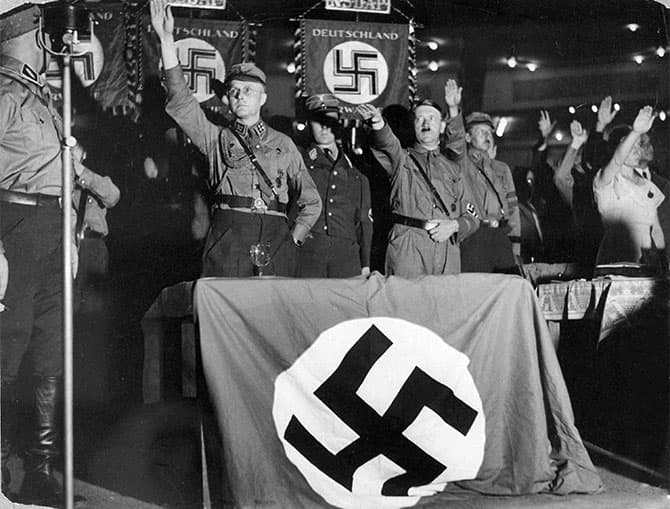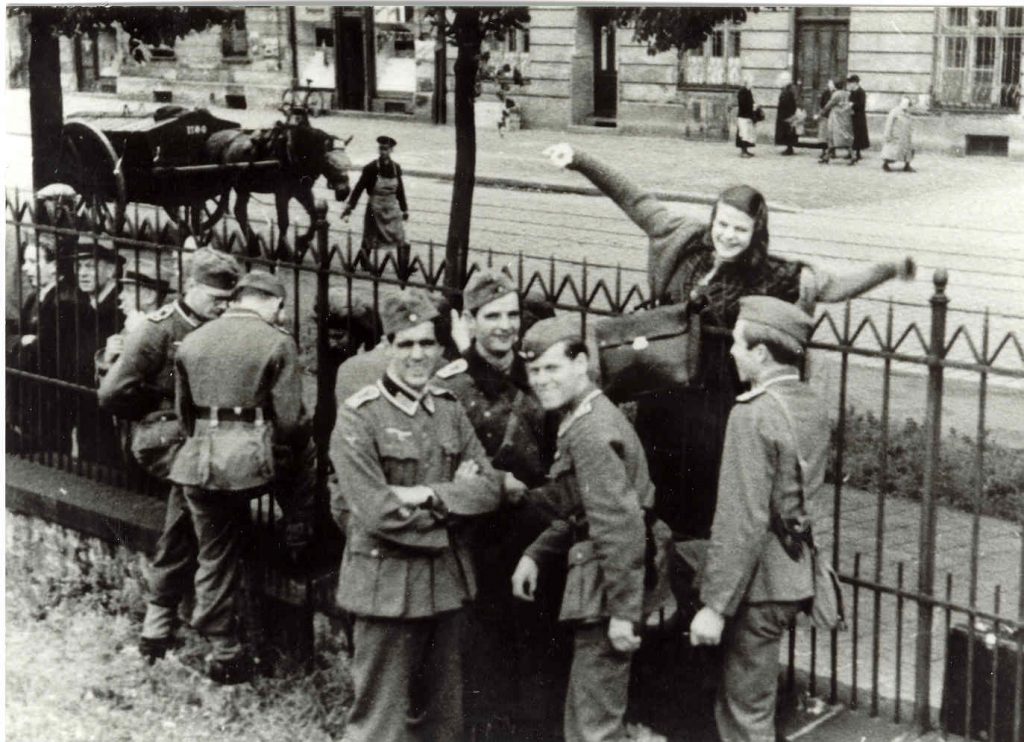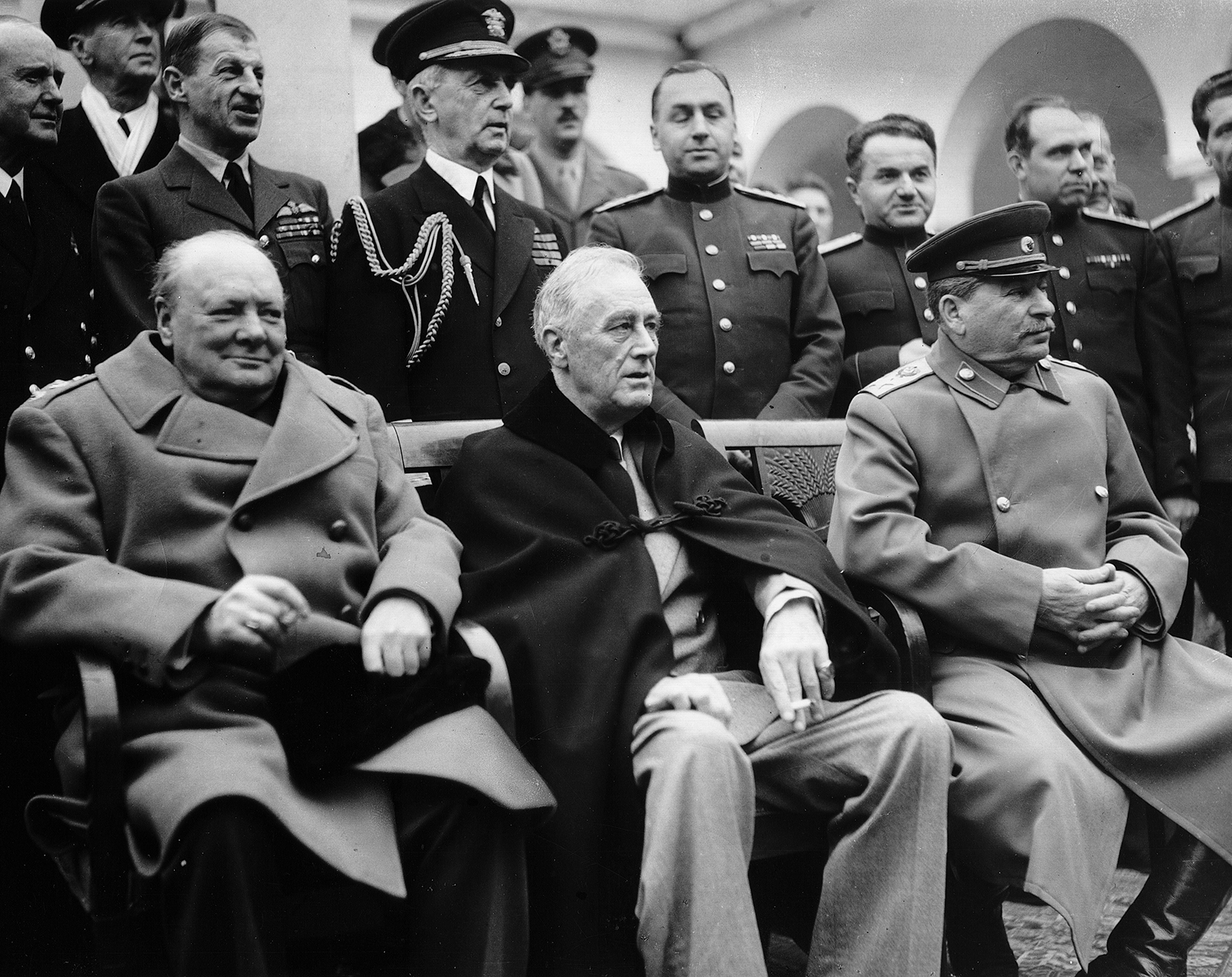
Nazi Regime
“I will tolerate no opposition. We recognise only subordination – authority downwards and responsibility upwards.”
~ Adolf Hitler, 1931

Nazi Rally
(Associated Press)
After Adolf Hitler’s election in 1933, the Nazi party controlled Germany until 1945, eliminating anyone who did not comply with their beliefs. The Jewish community became scapegoats. The Gestapo monitored German society, constantly patrolling for dissenters. If one were caught defying the Nazis, consequences included being sent to concentration camps or even execution.
"Each activity and each need of the individual will be regulated by the party as the representative of the general good. There will be no licence, no free space in which the individual belongs to himself. The decisive factor is that the State, through the Party, is supreme."
~ Adolf Hitler, 1933
Broken Diplomacy
The White Rose Beliefs
"The group had no wish to throw bombs, or to cause any injury to human life. They wanted to influence people's minds against Nazism and militarism."
~ Anton Gill, 1994
Despite prior support some members held for Hitler, the White Rose held liberal beliefs and strived to convince the country that Hitler's policies were wrong. They decided to combat Hitler with passive resistance, knowing that they would be captured immediately if they showed any aggression. They aimed to spark larger debate, with hopes of more Germans taking a stand against the Nazis. Unfortunately, the German community failed to participate in their opposition due to the immense fear Hitler's government imposed.

White Rose Students
(The White Rose Foundation)
"Somebody, after all, had to make a start. What we wrote and said is also believed by many others. They just don't dare express themselves as we did."
~ Sophie Scholl, 1943
Hitler strove to consolidate power. He sought to eliminate anyone who threatened his power, goading Europe into war. Several world powers—France, Great Britain, and Italy—knew of Hitler's dangerous ideas, but none took action against him. At the Munich Conference in 1938, these countries agreed upon a policy of appeasement, allowing the German annexation of Czechoslovakia's Sudetenland as long as Hitler pledged peace. Hitler agreed, though he had no intention of stopping his conquest. This lack of diplomatic intervention from Western powers led to the ultimate call to action from a group of University students.

Allied Powers in WWII
(Britannica.com)
"A small group of Munich students were the only protesters who managed to break out of the vicious circle of tactical considerations and other inhibitions. They spoke out vehemently, not only against the regime but also against the moral indolence and numbness of the German people."
~ Joachim Fest